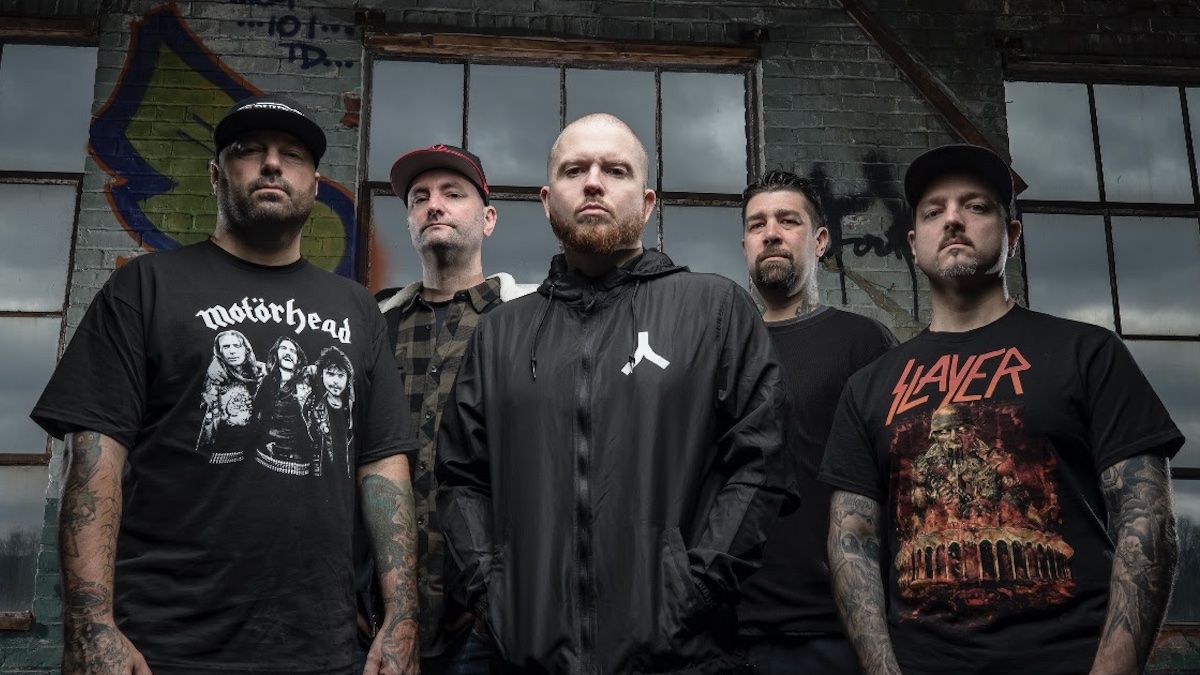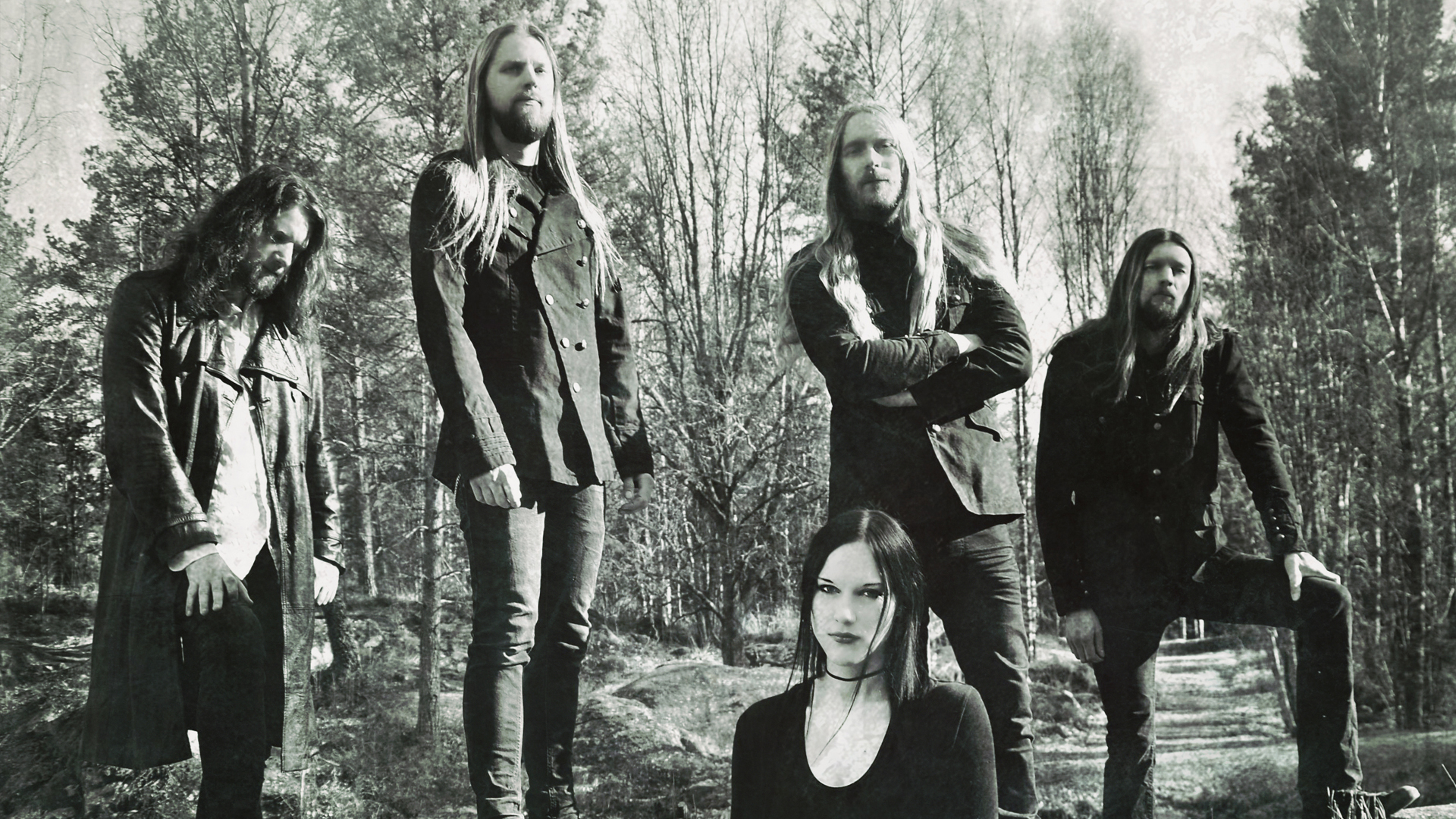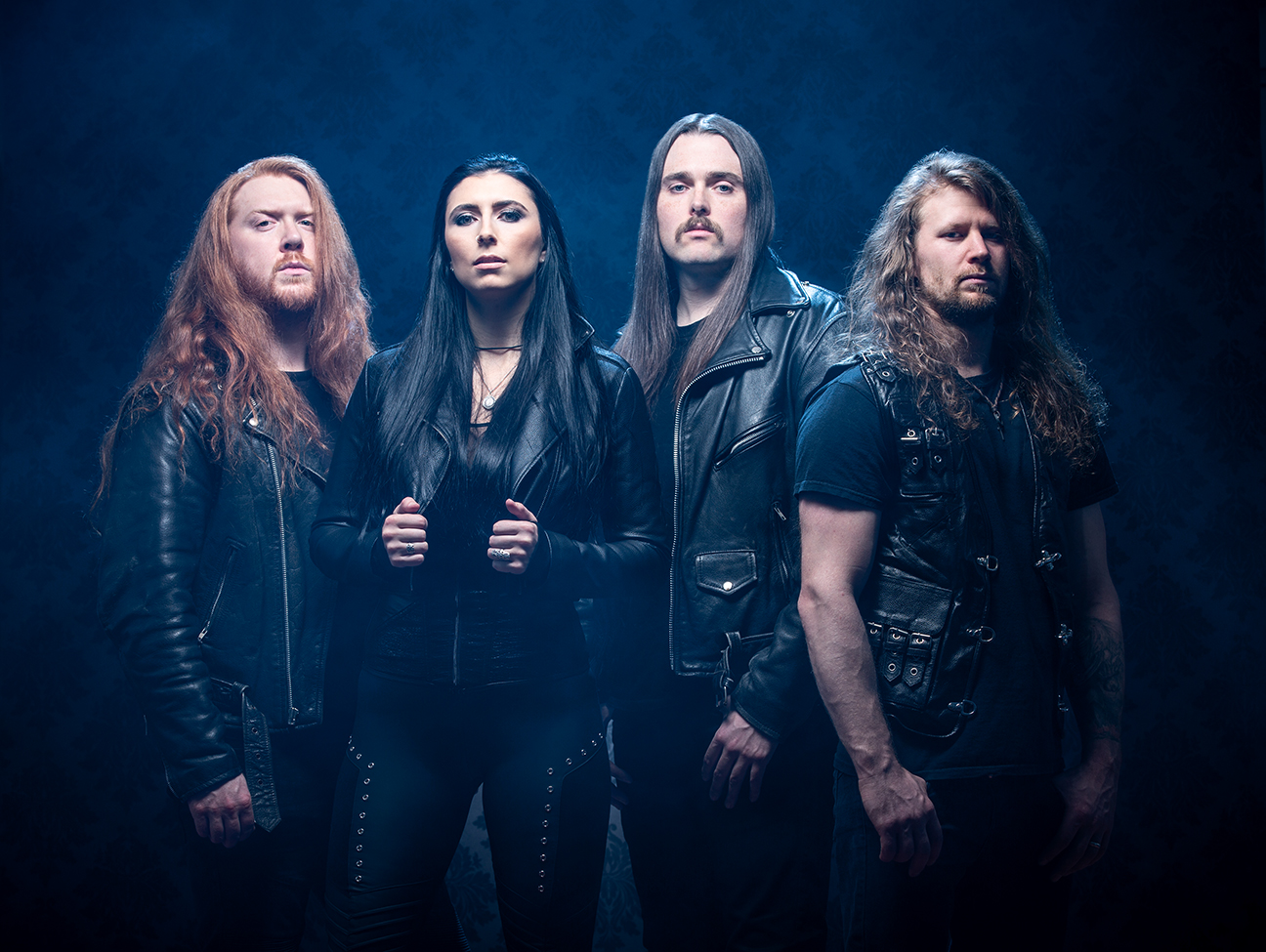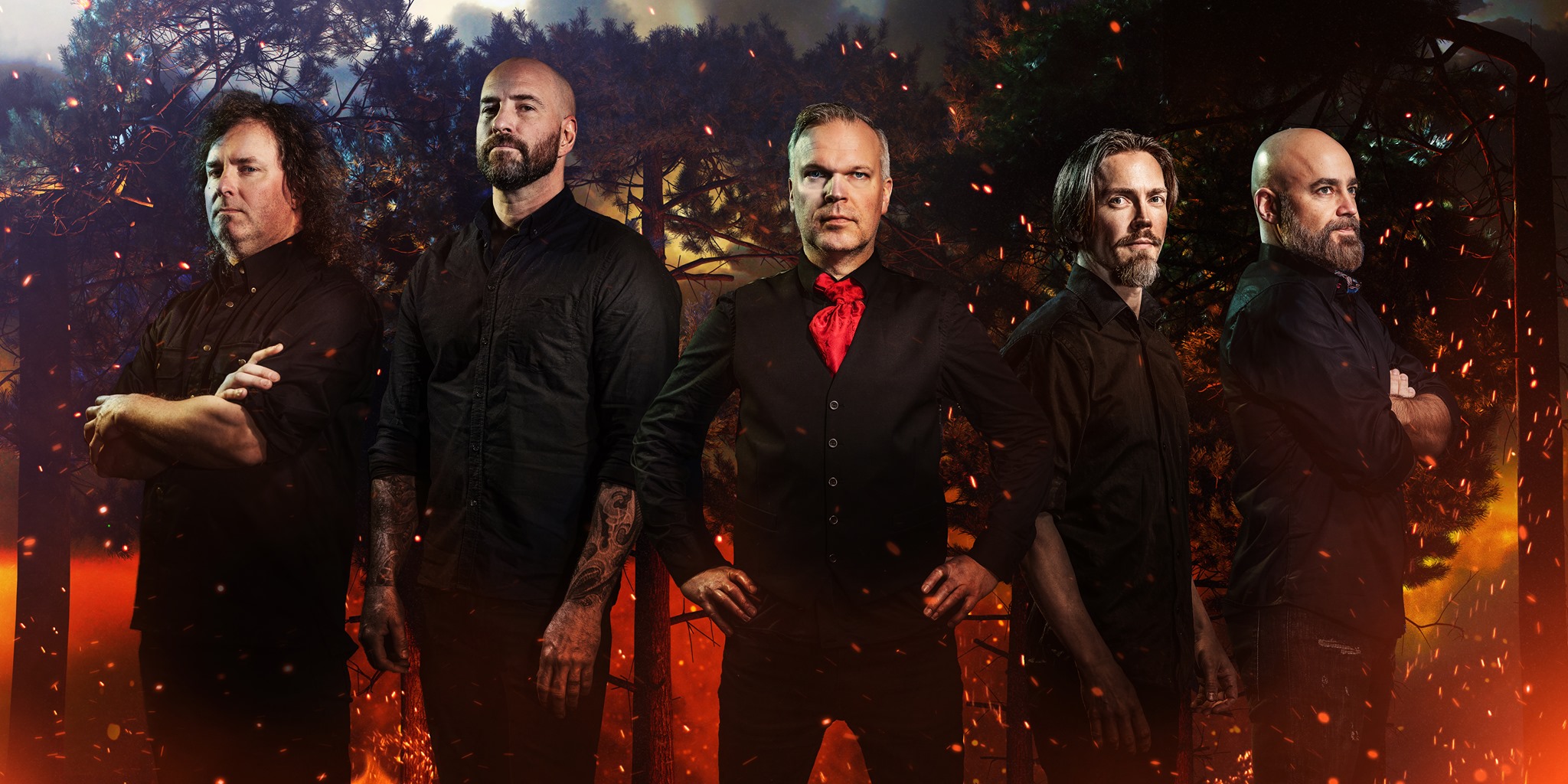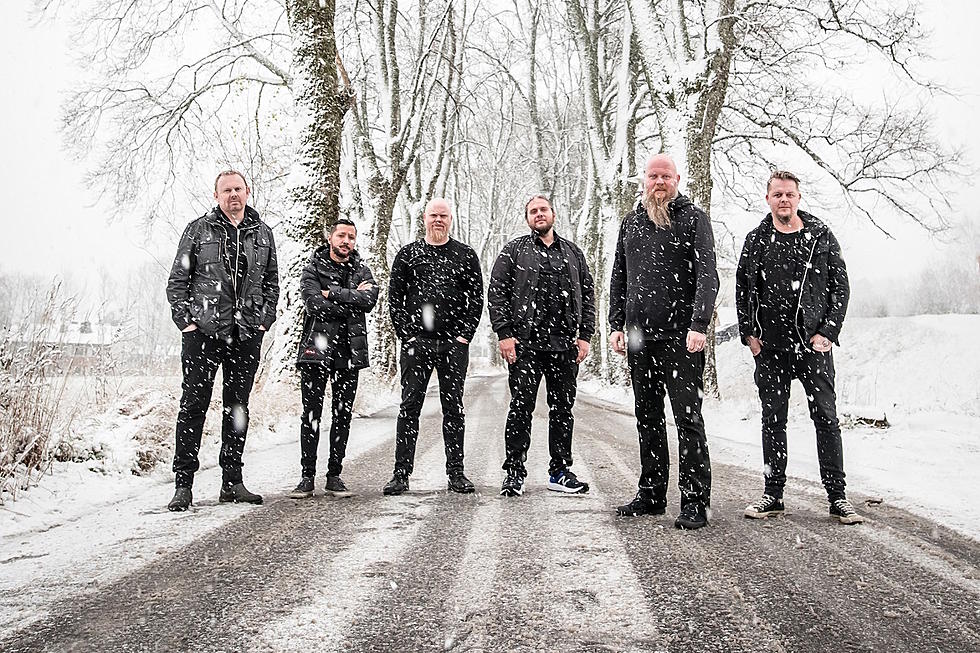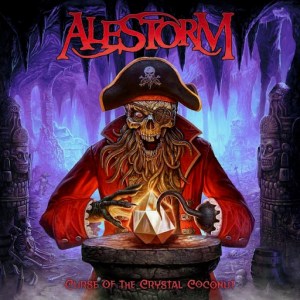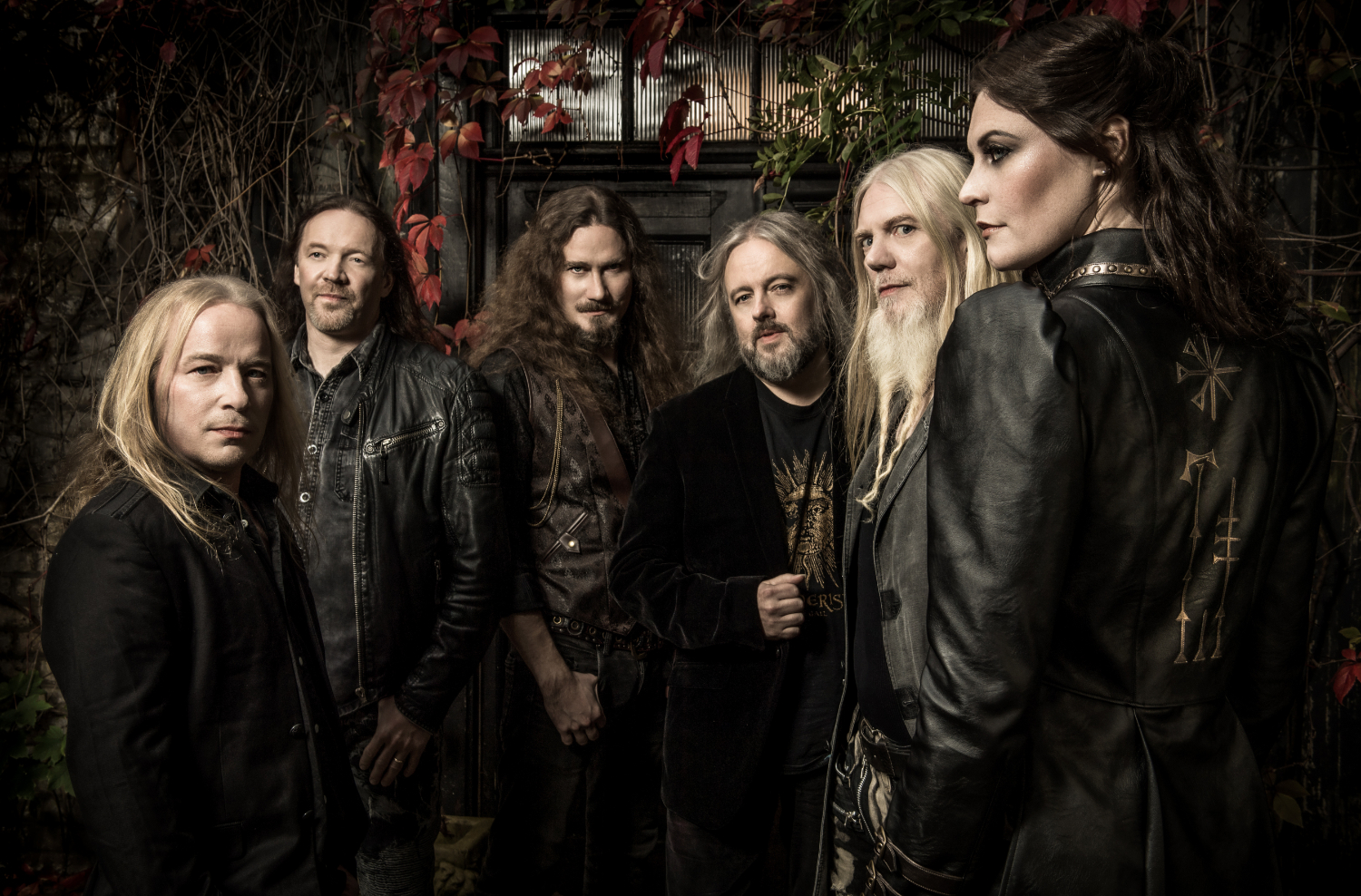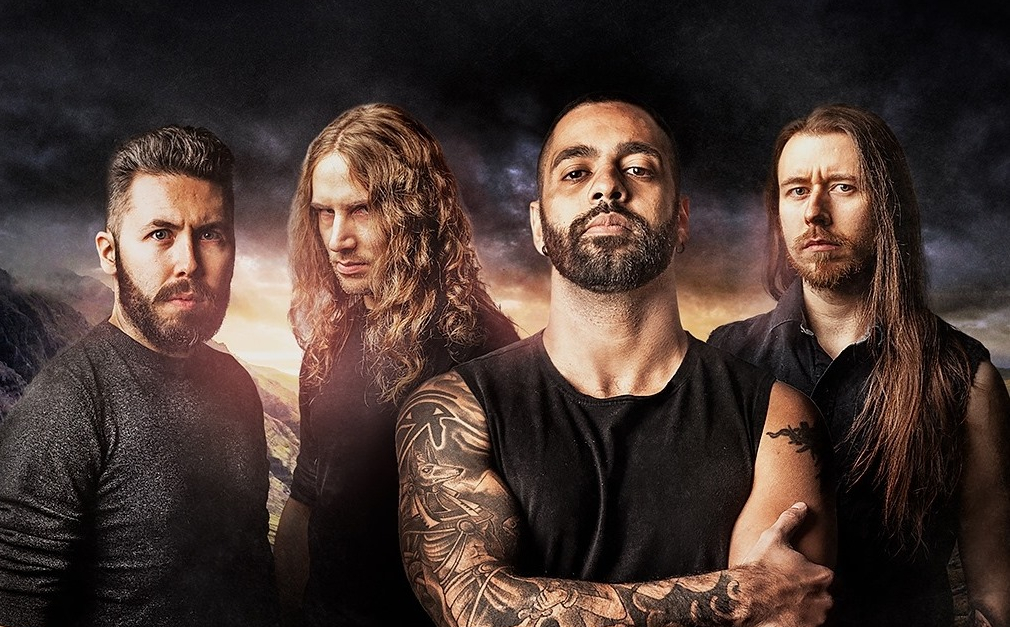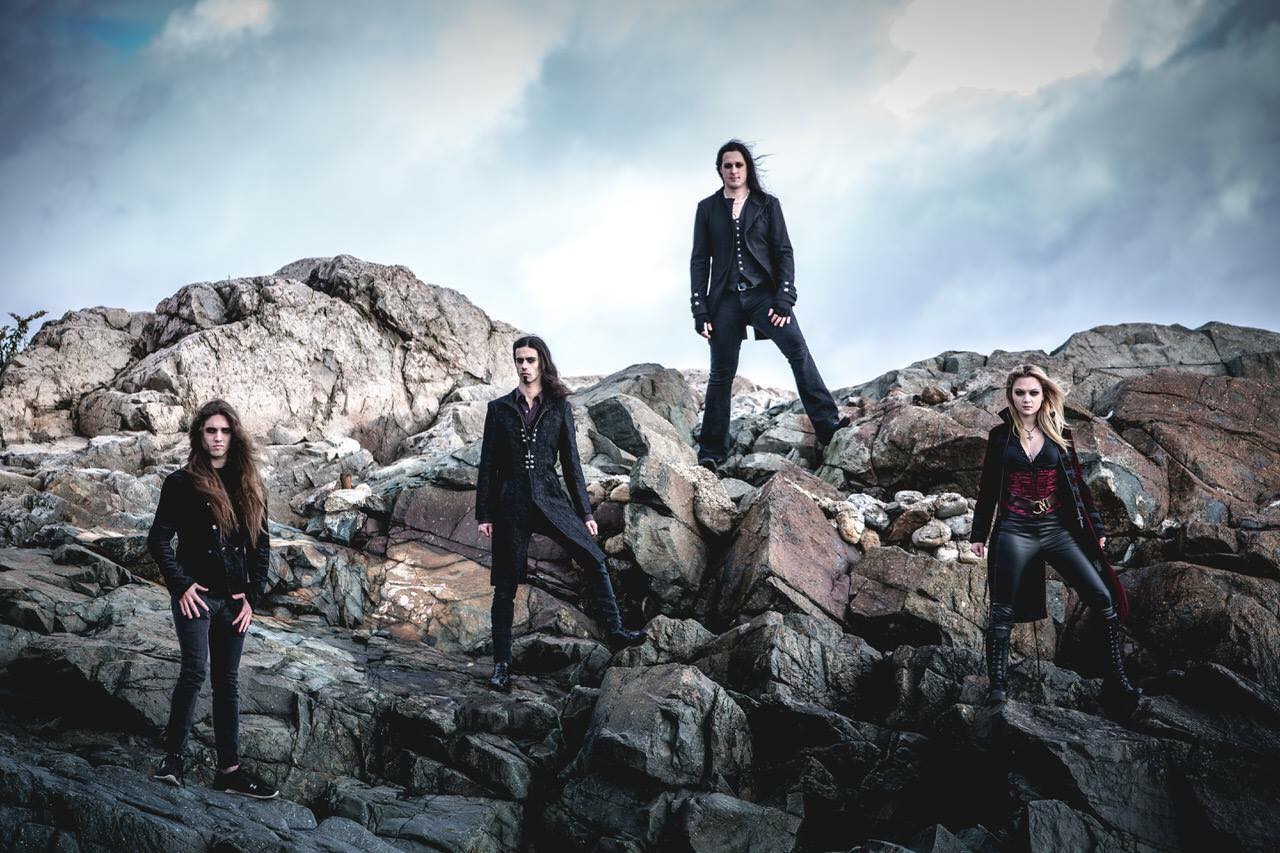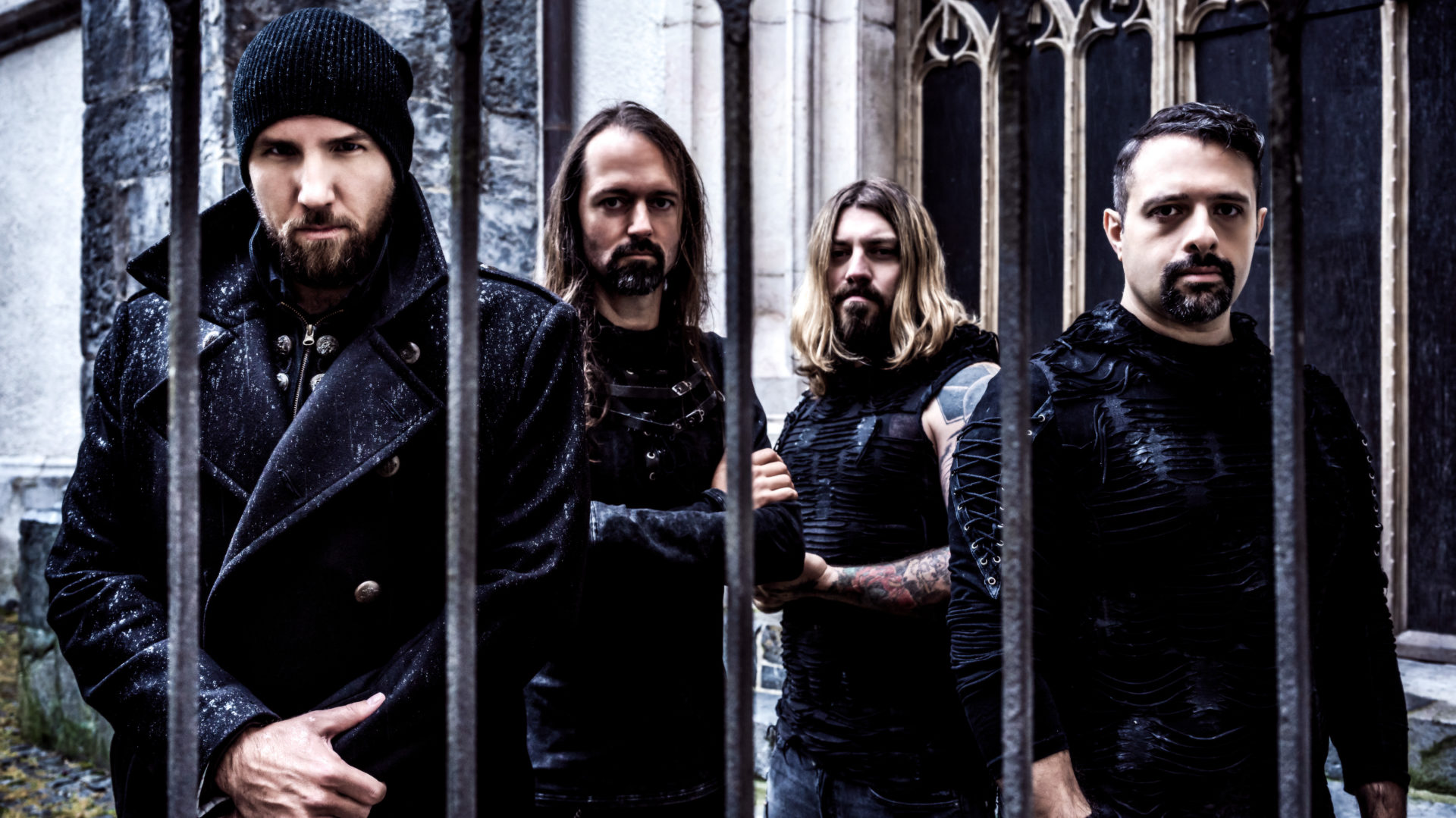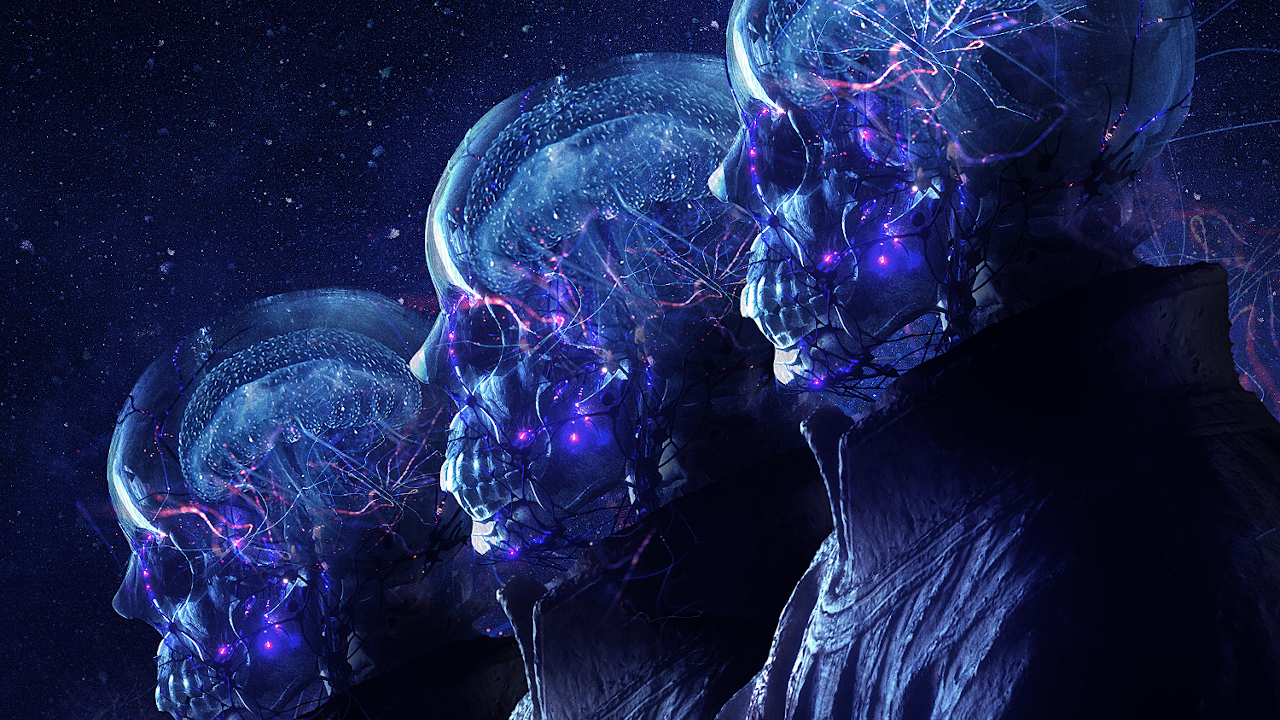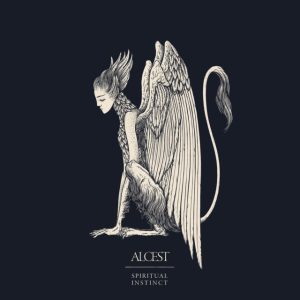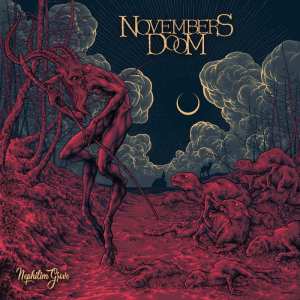Here we are at the end of all things, well… all things 2020 really. I’m calling it curtains on the metal year with my final reviews below, and the next updates after this will be my best songs and albums lists of 2020. I will acknowledge straight away that I know I didn’t review everything I planned to this year, particularly here at the end (I tried to make sure some of that stuff was addressed on the MSRcast episodes throughout the year), but hey it has been a tough, difficult year to adjust to and a lot of my free time was spent just making sure I was in a good headspace (I’ll never understand how I was able to mentally survive April and May). I know there’s going to be a slate of think pieces on 2020 as we march closer to New Years Eve. Thankfully life seems to be getting easier personally, even if things in general are getting worse out there with Covid. I’m still bummed out to acknowledge that this will be the first whole year I’ve gone without seeing a concert since I was what 17 or 18? I might have rounded a corner on a dull acceptance of live music deprivation, instead of the angsty panic I was feeling a few months ago where I was actively looking around for backyard death metal gigs in Houston and even briefly considering heading over to a nearby rehearsal studio where local bands held practices to see if anything was up. Based on all the news we’ve been hearing about the vaccines, it looks like we’re going to be waiting until mid-2021 at earliest before we get serious tours running again but I’m hopeful that things might move quicker than that.
I want to take a minute to throw out a massive shout out/thank you to the r/PowerMetal community, a group of snarky but intelligent and kind people who were largely my social lifeline during a time when seeing friends in person on the regular was not happening. That has started changing for me lately but for awhile there, if it weren’t for this bunch, the dark times would have been much darker. Special shoutout to Darko, Rocket, Four, Nuc, and Bones —- some of the nicest people that were not only instant therapy in those bleak early Covid weeks, but generally are always around to entertain my random thoughts at odd hours of the day. And there’s other shout outs as well, people and/or their content which helped me power through this hell year:
Rambalac (YouTube):
I’ve been on the Rambalac train for well over a year and a half now, long before the pandemic, his no nonsense, no dialogue walking tours of Japan being my window into a surreal and beautiful place that I really really want to visit now. A group of friends and I became huge fans of his, often finding ourselves having one of his videos on at group hangouts and finding ourselves transfixed on them, the scenery becoming the focal point of discussion. Now I don’t know what Rambalac looks like, he’s not interested in filming himself and I’ve only heard him speak briefly in Japanese in response to a passerby, but I’m convinced this man is a living saint. Before the pandemic, I googled his channel name to see if anyone else was thinking about these videos as therapeutic, escapist treasures like my friends and I were, only to find little to nothing (apart from the many people posting in his YouTube videos’ comments sections). But now the post pandemic media world has stumbled upon Rambalac’s channel and are flush with think pieces about his work. This is cool of course, because more eyeballs to Rambalac will keep him walking and that’s good news for all of us. I can’t begin to describe how calming his videos were in the immediate lockdown months of April and May (and truthfully ever since as well), I would take refuge in them and celebrate their capturing the essence of pre-pandemic life. The interesting thing here is that Ramby (yes I call him that) is continuing to shoot new videos, so you get to see post-pandemic Japan which is… not too dissimilar to what things were like in his videos before the pandemic. If you haven’t checked out this channel, you owe it to yourself. There are a handful of fascinating walking tour channels in his wake, such as Gezeyenti covering the Middle East and ProWalkTours who goes anywhere and everywhere (his Positano and Amalfi walks are breathtaking), and the splinter genre of driving videos best represented by J Utah who puts out captivating content. But Rambalac is the G.O.A.T. of the genre because of his singular focus: Japan is a beautiful, strange, and infuriatingly convenient place where walking is a way of life, 7-11s provide delicious, healthy food and I can only gaze at it all longingly through Rambalac’s gimballed eye.
Haim (The band):
I discovered Haim sometime in April when I was aimlessly wandering around listening to cheerful pop music on Spotify and this was recommended to me as a result. I became an instant fan of the sisters Haim and their breezy melodies with lush harmony vocal drenched guitar rock-pop (whatever we’re gonna call it). They’re a Los Angeles based band, and that California musical DNA ala Fleetwood Mac is inherent in their sound, which might be why a lot of their songs hit me with waves of nostalgia, bringing to mind my California based early childhood It’s that weird kind of nostalgia that you can’t explain logically, like yearning for a time you weren’t even alive for, or in my case, what I imagined adulthood would be like when I was a little kid (damn was I waaaay off). When I wasn’t listening to a crap ton of power metal (see below), I’d often be listening to songs like “Now I’m In It”, “The Wire”, “Something To Tell You”, and everything else from their three albums as I drove around various backroads of Texas to avoid feeling cooped up at home during lockdown. If there was ever a moment to discover a band who’s sound made the day brighter, it was right then and Haim was the right band.
Good Mythical Morning / Mythical Kitchen (YouTube):
I expect many people binged on feel good stuff throughout this year, and while I made the expected runs through old favorites like Seinfeld, Frasier, and Parks and Rec, I really relied on the endless treasure trove of happy nonsense that is Rhett and Link’s Good Mythical Morning and its after show Good Mythical More. I’m sure everyone knows about these guys and their taste tests and silly games (the March Madness snack playoffs are a particular favorite), but I expect that less know about how spectacular their cousin channel Mythical Kitchen is, with Josh Scherer aka Mythical Chef Josh as the host. As ridiculous and fun as their videos are, ranging from fast foods recreated to fancier versions, food fears, and just absolute nonsense like this, I think the best thing to come out of the Mythical Kitchen world is a podcast called A Hot Dog Is A Sandwich. Hosted by Josh and fellow Mythical chef Nicole Hendizadeh, it is my favorite new podcast in 2020, being a lighthearted debate show about food topics that you wouldn’t think are capable of being worthy of in-depth discussion. I can’t tell you how much I appreciated having this brief 40-ish minute break to bliss out into conversations about french fries vs onion rings or if chocolate is technically a candy to get a break from nonstop covid and/or election news. I know I don’t normally recommend podcasts on this blog, but I wanna throw this out there just in case anyone needs some happy happy fun times.
The Anti-Anxiety Power Metal Playlist (Spotify):
This was a labor of necessity back when it started in April, a personal playlist to help distract me and cobble together the most uplifting, positive power metal I could think of in one easy go for my own listening. I added everything that came to mind immediately and then realized I should be soliciting opinions from other people in the power metal community for unexpected gems and stuff I’d missed, and not only that, but to share the results of that help with anyone and everyone. So the playlist was made public and I set about adding to it slowly over the past many post-pandemic months now, eventually hitting my goal of getting to 300 songs by the year’s end (we’re well over that at last count). Thanks to everyone who suggested stuff, I’ve even had a few as recently as a couple weeks ago, and I see that the playlist has over 60 people following it. I’m still using it whenever I’m feeling gloomy that day, but it’s also doubling as a much needed brain saver when I have no idea what I want to listen to, just that I need it to be satisfying like right now! I’ll keep building the playlist over time, its not going anywhere, follow/subscribe to it if you haven’t yet and throw songs my way if you think of any.
Hatebreed – Weight Of The False Self:

I think I’ve written about how I got into Hatebreed via listening to The Jasta Podcast often enough on the blog (I’ve certainly talked about it on the MSRcast), but long story short, I was big on 2016’s The Concrete Confessional, it even made that year’s top albums list simply due to the unavoidable fact that I played it relentlessly for most of that year. It’s unlikely that its follow-up, released a lengthy four years later in the clunkily titled Weight Of The False Self will land on my 2020 list —- not because its a bad record, far from it in fact. However it’s late November street date (Covid delayed from its original spring release) is naturally going to prohibit me from listening to it nearly as much as its predecessor in time, and secondly, while it’s as hooky, aggressive, and adrenaline inducing as any Hatebreed album, its not as uniformly excellent as Concrete. That album channeled the seething rage of living in 2016 America better than any record that came out that year, it’s lyrics tapping into a vein of societal frustration and desperation that proved eerily prescient about the election that year. And that rage was reinforced by the full-on embrace of thrash metal riffing into their metalcore formula, resulting in some truly vicious, cathartic music. In as much as that record looked outward with a caustic eye, their new album sees Jasta reflecting inwards once again, his lyrics focusing on the universal topics of personal struggle, self-worth and self improvement. Take the rather shrewdly written “Set It Right (Start With Yourself)”, featuring the most affirming lyrics I’ve heard this year addressing an ultra divided society and the culture of social media toxicity. Rhythmically, the song brings a strong Black Flag “TV Party” vibe, built on call and response group vocals, with Jasta himself reminding me of vintage era Rollins not only in lyrical philosophy but in his delivery as well. Other highlights include “Cling To Life”, built on a sludged-down tempo that builds to a surprisingly pretty and fluid guitar solo courtesy of Wayne Lozinak; and I really love “A Stroke Of Red”, its call and response grinding, headbanging stomp erupting in a pit ready breakdown around the two minute mark that brings back a little of Concrete’s thrash attack back into the mix. There are actually no skippable songs throughout, a rare achievement on a twelve song tracklist, and this will be a frequent player in the months to come, regardless of whether it ends up on any lists or not.
Pyramaze – Epitaph:

Denmarks’ prog-power veterans Pyramaze are back with a follow up to 2017’s fair to decent Contingent. First of all congratulations are in order for the band, who with Epitaph have now passed a milestone in their history for the longest stretch of albums under their belt with a consistent lineup, as well as the largest amount of albums with one vocalist (Terje Haroy). This is only Haroy’s third album with the band, so its not like it was a monumental obstacle to clear, but during that lengthy wait between the lone 2008 Matt Barlow album and Haroy’s 2015 debut, it seemed like the band might not even get a shot with a third singer at the helm. With the Haroy era hitting this new benchmark, this is clearly the sound of Pyramaze, and anyone hoping for hints of their older approach will just have to stow that away —- after all that was two singers and a major songwriter ago. Producer extraordinaire Jacob Hansen is largely now the driving creative force for the band, their predominant songwriter along with outside help from Anubis Gate’s Henrik Fevre with vocal melodies and lyrics. And this new album sounds a lot like the past two, and depending on how you felt about those it’s either something to celebrate or bemoan. I largely enjoy modern Pyramaze because of Haroy’s satisfyingly smooth, hard rock informed vocals —- he may not be penning these vocal melodies himself, but they’re tailored to his strengths. His singing is set against a backdrop of slick, at times glossily produced slabs of modern melodic metal, and its enjoyable stuff for the most part, if not exactly challenging. Songs like “Bird of Prey” and “Transcendence” stick out here; the former for its alternative-rock guitarwork and Haroy’s way with a major key vocal melody that’s bright and hopeful, while the latter is a satisfyingly catchy vocal duet/tradeoff with UtA’s Brittney Hayes. And after multiple listens, “Particle” grew on me, its chorus deceptively earwormy despite the song being a little on the softer side. The big noteworthy track here is the album closing epic “The Time Traveller”, featuring both Barlow and Lance Hart as guest vocalists, uniting all three Pyramaze singers together in a nod to their union onstage at Progpower 2016. It’s interesting in that each singer’s section seems written to replicate their particular era with the band, hence the time travelling allusion in the title. It ends up being a solid song in the name of fan service, although not my favorite ultimately. I guess my frustration with Pyramaze, and indeed a lot of modern prog-power bands, is that there’s a sense of new music being very by the numbers, good enough to serve as a follow up from the last album (i.e. very safe). This is a good record, but not a great one, and I wonder if they have it in them to deliver something that would really wow us.
Dark Tranquility – Moment:

Dark Tranquility are back after a lengthy four year stretch (granted, mostly filled with touring) since 2016’s Atoma —- a record that I didn’t love but grew on me slowly over time, and that I came to appreciate when I saw the band live in 2018. Ever since that show, I’d find myself slowly dipping back into their catalog which I’d sadly neglected a bit over the past decade, and finding more moments that I’ve come to enjoy as much as early records like Haven and Damage Done. So I was looking forward to Moment with not only anticipation, but a catalog awareness that I normally don’t have enough wherewithal to cobble together before a non-favorite band releases something new. And I will say straight off the bat, if you were hoping that this would be a dramatic about face from the sounds the started exploring on that album via heavy synth layering… well, prepare to be disappointed. If anything the band has delved further into that direction, an interesting thing to consider given the lineup changes that occured before this album was recorded with longtime guitarist Niklas Sundin departing and Christopher Amott taking his place (alongside Andromeda guitarist Johan Reinholdz). Dark Tranquility has always been eye poppingly democratic in their division of songwriting responsibilities, with usually a mix of 3-4 members contributing significantly. When guitarist/contributing songwriter Martin Henriksson left the band in 2016, they had already created an album written with scant few contributions from him in 2013’s Construct, in practical terms transitioning his share of the workload to Sundin, drummer Anders Jivarp, and keyboardist Martin Brändström. Now with Sundin’s departure, Reinholdz seems to be stepping in and handling the remaining workload alongside the usual suspects, with oddly Amott left out this go round (why?). The further synth exploration yields an expected number of merely passable, nice in the moment cuts like “Standstill” (I really like that chorus though), “Transient”, and “Eyes Of The World”. Mikael Stanne’s clean vocals sound more polished than ever, but at times that becomes a liability when he uses them too much in a single track. He’s far more effective on album highlights “A Drawn Out Exit” and the spectacular “Identical To None”. I do appreciate that there’s more of a melo-death sensibility happening throughout this album, but the synths are my overwhelming impression when thinking about this album, and my appreciation for the album changes because of it depending on my mood. I’m eager to see what DT can do in the future with Amott writing, they need a little change in their approach for sure.
Persuader – Necromancy:

Persuader albums are such rare events that I always get a little excited at their arrival, this year in particular. They’re just comforting power metal blankets cut from that Blind Guardian/Iron Savior cloth and in a year where the new Demons and Wizards and Blind Guardian orchestral project were both largely dissapointments (and of course you know, the pandemic), I friggin needed some comfort! While its not quite the eight year gap between 2006’s When Eden Burns and its follow up The Fiction Maze, it has been over half a decade since Persuader has released new music, so I’m glad they decided to stick to the tried and true formula here. Longtime bassist Fredrik Hedström left the band last year, and instead of replacing him founding guitarist Emil Norberg is handling bass on this record, and its also the first time we’re hearing Nocturnal Rites’ Fredrik Mannberg on rhythm guitars here. But despite this, Mannberg picks up immediately on what the band’s about and sticks to the precision machine-gun riffing that these songs demand, and right out the gate we’re launched into “The Curse Unbound”, as fine an opener as I’d have hoped for. Its hard to talk about vocalist Jens Carlsson without mentioning Hansi, but when you hear his delivery of lines like in the chorus here “Far from home I’ve found myself all alone in the dark”, he just has that ever so familiar ability to escalate in pitch and yet maintain intensity that just screams classic BG. Along with the epic “Scars” and its glorious chorus (“I look behind the door!” *fist pump*), this is the most satisfying one-two punch combo since “Strike Down”/”Sanity Soiled” on the classic Evolution Purgatory. The band’s compositional skills haven’t taken a hit with all the years away, in fact it seems like they spent a lot of time on the details of these songs. Gems like “Reign In Darkness” have a multitude of awesome details to geek out over, the little Nicko McBrain-esque kickdrum led intro to Carlsson’s layered vocal choir, the darkly tinkling keyboards that pop up midway through in lieu of an expected guitar solo. Norberg and Mannberg are a great pair, just satisfying riffs and explosive leadwork all throughout the record —- if Norberg lacks the wild expressionism of Andre Olbrich, he makes up for it by crafting crushing riff patterns. At seven songs this might seem like barely an album, but its a tight 44 minute banger, and I’m starting to believe most bands should be aiming for something in that ballpark. Quality over quantity and all that, Persuader deliver the goods here.
Iron Maiden – Nights Of The Dead, Legacy Of The Beast: Live In Mexico City:

Why am I reviewing this? Because I want to complain. So yeah its another Maiden live album and another tracklisting that features “Iron Maiden”, “The Number Of The Beast”, and “Fear Of The Dark”, and although its worth complaining about their inclusion on every frigging Maiden live album —- that apparently has fallen on deaf ears over in the Maiden camp and its likely never going to change. And you know, I get it: What we’re fundamentally bitching about there is their inclusion in the setlist in the first place, nevermind the live recording. Maiden throws those songs into their setlist because the band’s likely perspective is to design as inclusive a setlist for most of their audience, including younger fans and infrequent concertgoer fans who maybe haven’t gotten to hear those classics live yet. This new live album is merely an audio document of the Legacy Of The Beast tour’s setlist, and in that sense it’s a meticulous and accurately preserved archive. The presence of “For The Greater Good Of God” is really the central draw of this for Maiden die-hards, it was a surprise to see it on the setlist and a thrill to hear it live, it being my favorite song off AMOLAD. My problem really isn’t with the setlist, as frustrating as it can be for a longtime/diehard fan. The real issue with this release is that it’s merely a live album, as in solely an audio document. Are you kidding me Maiden? This was arguably the band’s most dazzlingly spectacular visual show in their history, perhaps only equalled by the Somewhere Back In Time World Tour (08-09) where we got to see the mummified Eddie and Powerslave era stage set recreated. If you saw the show, or even saw some of the decent fan-shot footage on YouTube, you’ll think of the moving replica Spitfire hanging above them on stage, or the beautiful stained glass cathedral window interior set with the lit candelabras, Bruce with his flamethrowers, and so much more. I can’t even begin to understand why the band would’ve opted for an audio document instead of an audio AND video document, or hell, just the video —- this show deserves a Bluray like En Vivo!. Give me a reason to give you money, because as it is, I’ve played through this live record a couple times on Spotify but without a visual companion, I’m a little less invested in it knowing what I know about the stage show. I suppose it’s a bit of an old school throwback to just deliver a live album in the new era of streaming video on demand, ever shifting attention spans, and endless content… but I guarantee you during this time of no concerts, I would’ve giddily sat down with a new Maiden live Bluray and savored every second.

